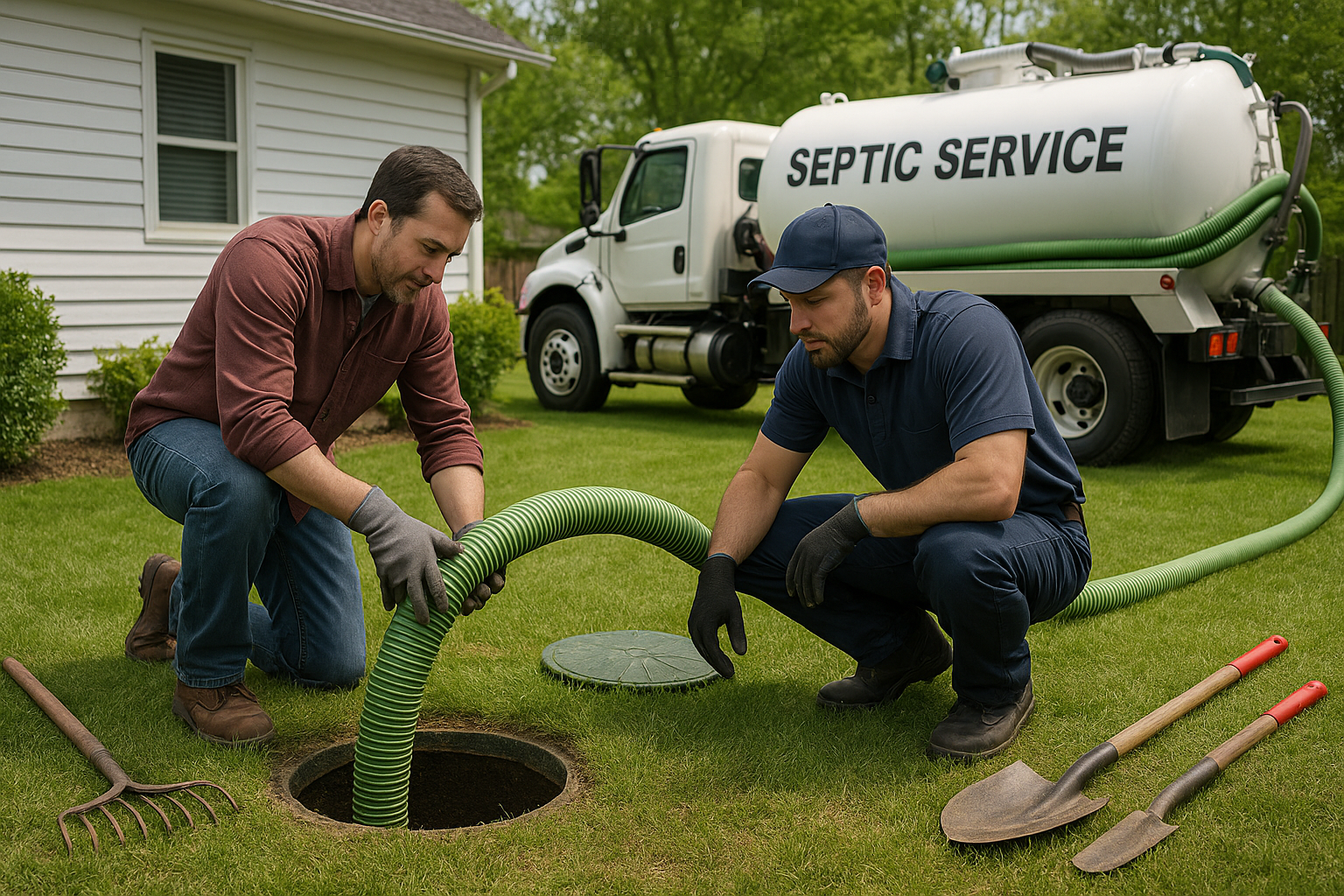Have you ever tossed a “flushable” wipe down the toilet, thinking it would disappear just like regular toilet paper? You’re not alone; many homeowners trust the label and assume these wipes are safe for their septic systems. Unfortunately, that small convenience can lead to significant flushable wipes problems and household plumbing risks that most people rarely consider until it’s too late.
The truth is, “flushable” doesn’t always mean safe for your septic tank maintenance. While these wipes might make it through your toilet, they often don’t break down properly inside your system. Over time, they can cause wipes septic damage, sewer system clogging, clog pipes, damage pumps, and even trigger expensive septic system repair. Homeowners who ignore these warning signs often face repeated plumbing issues, emergency drain unblocking services, and costly replacements. For more insights on proper system care, check out our guide on commercial septic system maintenance in Sacramento.
Understanding how these wipes affect your septic system isn’t just about avoiding repairs; it’s about keeping your system healthy, efficient, and long-lasting. Knowing what’s safe to flush, including flushable wipes alternatives and septic-friendly products, can save you thousands of dollars and a lot of stress in the long run. A single small habit, like switching to biodegradable wipes benefits, can prevent years of problems with pipe blockage causes, protect your household wastewater tips, and maintain smooth toilet flow.
By being proactive and informed about your septic system guidelines, you ensure that minor mistakes won’t escalate into major septic backup emergency situations. Taking these steps now is far more cost-effective than paying for expensive septic tank inspection cost or repairs later. You can also read our tips on septic tank landscaping dos and don’ts to avoid accidental damage.
Understanding the “Flushable” Wipes Misconception
The idea of “flushable” wipes gained traction in the early 2000s, marketed as safe for plumbing and septic systems. However, most of these non-biodegradable wipes don’t break down like toilet paper, creating persistent pipe blockage causes and clogged drain solutions. Even eco-friendly wipes labeled biodegradable may take far longer to decompose in the low-oxygen environment of a septic tank. This slow breakdown often leads to clogged pipes, pump damage, and reduced efficiency in your septic tank maintenance.
Municipalities, plumbing service near me providers, and professional septic cleaning companies continue to warn homeowners about sewage backup signs caused by these wipes. Misleading marketing has created widespread confusion, leading to premature septic system troubleshooting, septic backup emergency, and increased septic system cost. Many homeowners mistakenly believe that if a product is labeled “flushable,” it is safe to flush, but the reality is very different.
To understand why these wipes are problematic, it helps to know how they differ from toilet paper. Toilet paper is designed to disintegrate quickly in water, preventing clogged drain solutions and supporting natural bacterial balance essential for wastewater treatment issues. In contrast, synthetic wipes resist breaking down, which creates persistent household plumbing hazards and potential sewer pipe maintenance problems. Educating yourself about these distinctions is essential for protecting your home, your septic system, and your wallet. For deeper insights, see our post on grease traps vs. septic tanks. By recognizing these risks, you can start implementing septic-friendly products and septic safe disposal methods to prevent long-term damage.
What Really Happens When You Flush “Flushable” Wipes
Unlike toilet paper, “flushable” wipes remain largely intact, leading to slow drainage, pipe blockage causes, and disruption to bacterial balance essential for wastewater treatment issues. Over time, this buildup can cause wipes septic damage, mechanical pump issues, and the need for costly septic system repair. Septic tank inspection and monitoring septic pumping frequency are critical to avoid septic backup emergency scenarios caused by repeated flushing of these wipes.
Consider a household that flushes these wipes regularly. Slow drains may appear first, followed by backups in toilets and sinks. A professional septic tank inspection might reveal a thick mat of wipes at the top of the tank, preventing proper waste separation. These blockages often require specialized drain unblocking services or even septic system repair, which can be expensive and disruptive. Flushable wipe myths contribute to ongoing household plumbing hazards, because people assume that anything labeled “flushable” will disappear safely.
In addition to physical blockages, these wipes interfere with bacterial activity within the tank. Healthy bacteria are essential for breaking down waste and maintaining smooth household wastewater tips. Wipes can slow decomposition, leading to odor issues and decreased efficiency. Even eco-friendly wipes must be evaluated carefully, as not all truly break down fast enough. Maintaining regular septic tank maintenance, proper septic system guidelines, and timely professional septic cleaning can mitigate these risks and prevent long-term sewer pipe maintenance problems. Homeowners may also consider innovations like IoT and smart septic system technology to monitor tank levels and prevent issues proactively. Awareness of these risks allows homeowners to implement flushable wipes alternatives and septic-friendly products without compromising convenience.
The Benefits of Proper Septic Tank Habits
Mindful septic tank maintenance protects your home, extends system lifespan, and reduces non-biodegradable wipes entering your system. Key benefits include:
- Fewer costly repairs – Avoiding wipes prevents clogged drain solutions and improper use of septic tank chemicals.
- Longer system lifespan – Proper septic maintenance checklist ensures consistent septic system troubleshooting and septic tank safety tips.
- Healthier environment – Reduced wipes environmental impact supports better wastewater treatment issues.
- Smoother household plumbing – Toilets flush properly, minimizing pipe blockage causes.
- Peace of mind – Regular septic tank inspection and septic pumping frequency help avoid emergencies.
When you practice good septic habits, your system runs more efficiently and you reduce the chances of costly interventions. Incorporating flushable wipes alternatives and biodegradable wipes benefits into daily use prevents repeated septic backup emergency situations. Educating your family about septic-friendly products and proper septic safe disposal methods ensures that everyone contributes to system longevity. Over time, these practices lower your septic system cost while maintaining healthy household wastewater tips.
Even small changes, like scheduling consistent professional septic cleaning or avoiding harsh septic tank chemicals, can create long-term benefits. The right approach ensures a cleaner environment, safer groundwater, and reduced sewer system clogging risks, all while keeping your home functioning smoothly and efficiently. For additional landscaping precautions around your tank, see septic tank landscaping dos and don’ts.
The Challenges of Managing Septic Systems in the Age of “Flushable” Products
Even the most responsible homeowners face challenges when managing a septic system with the rise of “flushable” wipes. Misleading labels, hidden blockages, and neglect can all contribute to costly septic system repair. Many homeowners are unaware of clogged septic symptoms or the household plumbing hazards caused by repeated flushing of synthetic wipes.
Practical strategies to address these challenges include:
- Be skeptical of marketing claims and use septic-friendly cleaning products.
- Stick to septic tank inspection schedules and septic maintenance checklist.
- Educate your household on septic safe disposal methods.
- Use drain unblocking services and install filters for toilet clog prevention.
- Work with professional plumbing service near me for guidance.
These steps ensure that small blockages don’t escalate into full septic backup emergency scenarios. Regular septic pumping frequency, careful selection of flushable wipes alternatives, and adherence to septic system guidelines can prevent expensive repairs and preserve system functionality. Understanding septic sludge management and wipes environmental impact is also critical for maintaining proper wastewater treatment issues.
Proactive maintenance protects your home, reduces environmental strain, and keeps household wastewater tips manageable. Homeowners who follow these guidelines experience fewer backups, lower septic system cost, and improved long-term system health. For environmental considerations, see our post on climate change impacts on septic systems in California.
Practical Steps to Protect Your Septic System
- Stop flushing wipes altogether; switch to biodegradable wipes benefits.
- Educate your household on septic-friendly products and household wastewater tips.
- Use septic-safe toilet paper and limit harsh septic tank chemicals.
- Schedule regular septic tank inspection and maintain septic pumping frequency.
- Keep drains clear using strainers and ensure proper sewer pipe maintenance.
These steps prevent wipes septic damage, reduce sewer system clogging, and maintain efficient household plumbing hazards. Incorporating flushable wipes alternatives, practicing proper septic tank maintenance, and engaging professional septic cleaning helps prevent septic backup emergency situations. Over time, consistent care ensures compliance with septic system guidelines, supports better wastewater treatment issues, and minimizes wipes environmental impact.
The Future of Septic Care: Innovation, Awareness, and Smarter Choices
Advancements include smart monitoring systems, biodegradable alternatives to wipes, and eco-conscious wastewater treatment issues. Homeowners can leverage septic system guidelines, septic tank installation insights, and eco-friendly wipes to prevent flushable wipes problems.
Future-focused households that combine septic-friendly products, proper septic maintenance checklist, and regular septic tank inspection cost awareness will experience fewer household plumbing hazards and lower septic system cost. These innovations empower homeowners to prevent clogged septic symptoms, avoid pipe blockage causes, and reduce septic sludge management issues, creating a sustainable approach to long-term septic care. Learn more about IoT and smart septic system technology for proactive management.
Keeping Your Septic System Healthy Starts with Smart Habits
Flushing “flushable” wipes might seem harmless, but they can cause wipes septic damage, sewer system clogging, and increased septic system cost. Regular septic tank maintenance, septic pumping frequency, and adherence to septic tank safety tips help prevent costly repairs.
By adopting proper septic maintenance checklist practices, using flushable wipes alternatives, and engaging professional septic cleaning, you protect your home, your investment, and the environment. Start today: toss wipes in the trash, schedule regular septic tank inspection, and educate your household on septic safe disposal methods. These small actions ensure a healthier septic system and fewer plumbing emergencies tomorrow.






